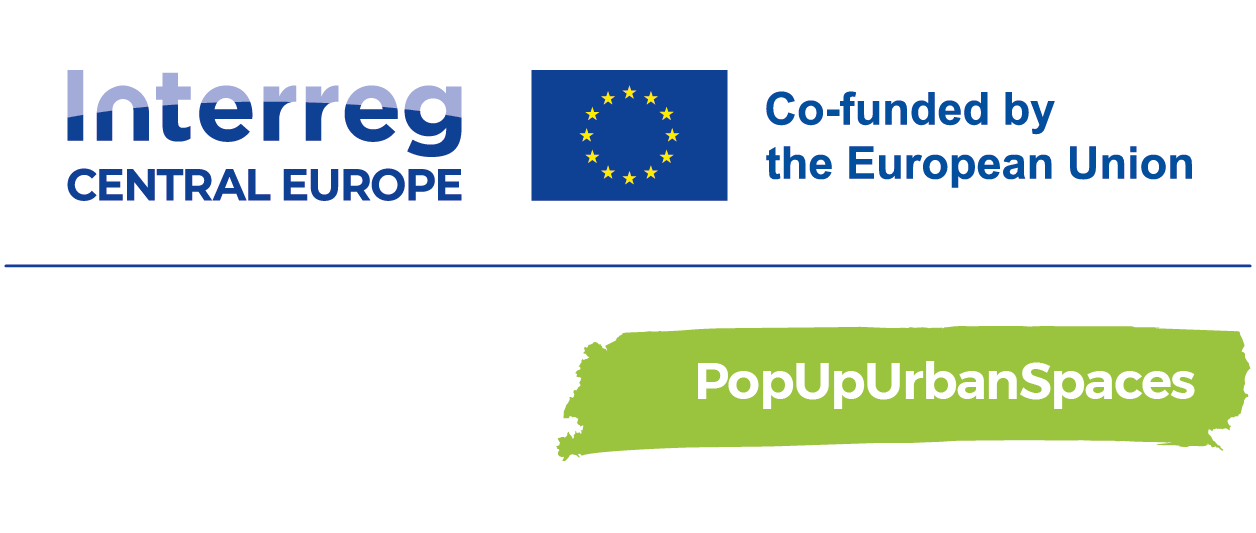Description

The aim of the project PopUpUrbanSpaces, based on the call for proposals Cooperating for a greener central Europe SO 2.5: Greening urban mobility in central Europe INTERREG is within 3 years (2023-2025) to draw attention to overlooked and one-sidedly used spaces and to demonstrate actions that show new design and organisation possibilities in a public space. This project is developed together with partners from Slovenia (lead), Poland, Germany, Italy, Croatia, Hungary and Austria - knowledge providers (4 different institutions) and city pilot partners (different small towns). "Pop-up" demonstration projects - e.g. temporary measures such as cycle paths, protected crossings, pedestrian crossings, parklets, street cafés, squares, benches, street trees and more - are valuable instruments to achieve "short-term measures for long-term change". Thus, especially in the sensitive and sometimes controversial area of zones reserved for cars in urban areas, a reclamation for cycling and pedestrian traffic can be stimulated and experimentally explored. Tactile urbanism is used to experiment on many levels. This can be addressing the following challenges: - Most of the typical measures of tactile urban ism are related to environmental problems - better walkability and bikeability, reduction of car traffic and thus air and noise pollution, increase of green spaces in the city. - Citizens work together to address the challenges of the city, which can improve social life and strengthen the community. - The experimental character allows for testing ideas and designs, reflecting on user behaviour, and making tactile urbanism part of the public planning process and linking it with self-initiatives. Through the joint development of workshops and temporary realisations, among other things: - identify obstacles to allowing certain temporally and spatially newly regulated (e.g. delivery) organisation of traffic - also of stationary traffic - and thus to gain the use of open spaces - to strengthen a good base for cooperation with interested contact persons from business and city administration - evaluate and document positive reactions to temporary measures to be able to build on these experiences: how can place-making initiatives in public space become more attractive, how can these measures be communicated accordingly to achieve a broader acceptance for them?
Details
| Duration | 01/03/2023 - 28/02/2026 |
|---|---|
| Funding | EU |
| Program |

|
| Department |
Department for Building and Environment Center for Climate Resilience and Building Stock Transformation |
| Principle investigator for the project (University for Continuing Education Krems) | Mag. Stefanie Kotrba |
| Project members |
Team
Lectures
Außenräume als Orte des Lernens
Pint of Science Krems, 13/05/2024